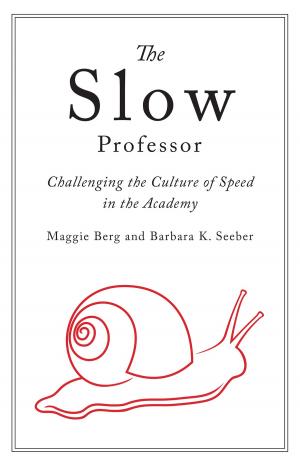In the Belly of a Laughing God
Humour and Irony in Native Women's Poetry
Nonfiction, Social & Cultural Studies, Social Science, Cultural Studies, Native American Studies, Gender Studies, Women&, Fiction & Literature, Literary Theory & Criticism| Author: | Jennifer Andrews | ISBN: | 9781442657724 |
| Publisher: | University of Toronto Press, Scholarly Publishing Division | Publication: | December 15, 2011 |
| Imprint: | Language: | English |
| Author: | Jennifer Andrews |
| ISBN: | 9781442657724 |
| Publisher: | University of Toronto Press, Scholarly Publishing Division |
| Publication: | December 15, 2011 |
| Imprint: | |
| Language: | English |
How can humour and irony in writing both create and destroy boundaries? In the Belly of a Laughing God examines how eight contemporary Native women poets in Canada and the United States – Joy Harjo, Louise Halfe, Kimberly Blaeser, Marilyn Dumont, Diane Glancy, Jeannette Armstrong, Wendy Rose, and Marie Annharte Baker – employ humour and irony to address the intricacies of race, gender, and nationality. While recognizing that humour and irony are often employed as methods of resistance, this careful analysis also acknowledges the ways that they can be used to assert or restore order.
Using the framework of humour and irony, five themes emerge from the words of these poets: religious transformations; generic transformations; history, memory, and the nation; photography and representational visibility; and land and the significance of 'home.' Through the double-voice discourse of irony and the textual surprises of humour, these poets challenge hegemonic renderings of themselves and their cultures, even as they enforce their own cultural norms.
How can humour and irony in writing both create and destroy boundaries? In the Belly of a Laughing God examines how eight contemporary Native women poets in Canada and the United States – Joy Harjo, Louise Halfe, Kimberly Blaeser, Marilyn Dumont, Diane Glancy, Jeannette Armstrong, Wendy Rose, and Marie Annharte Baker – employ humour and irony to address the intricacies of race, gender, and nationality. While recognizing that humour and irony are often employed as methods of resistance, this careful analysis also acknowledges the ways that they can be used to assert or restore order.
Using the framework of humour and irony, five themes emerge from the words of these poets: religious transformations; generic transformations; history, memory, and the nation; photography and representational visibility; and land and the significance of 'home.' Through the double-voice discourse of irony and the textual surprises of humour, these poets challenge hegemonic renderings of themselves and their cultures, even as they enforce their own cultural norms.















